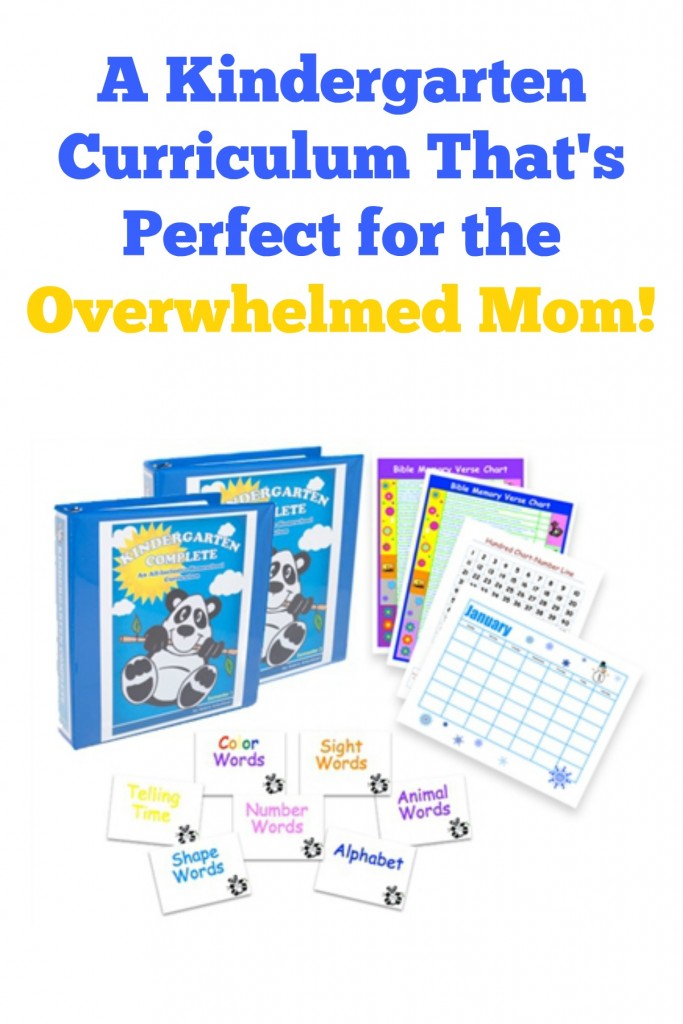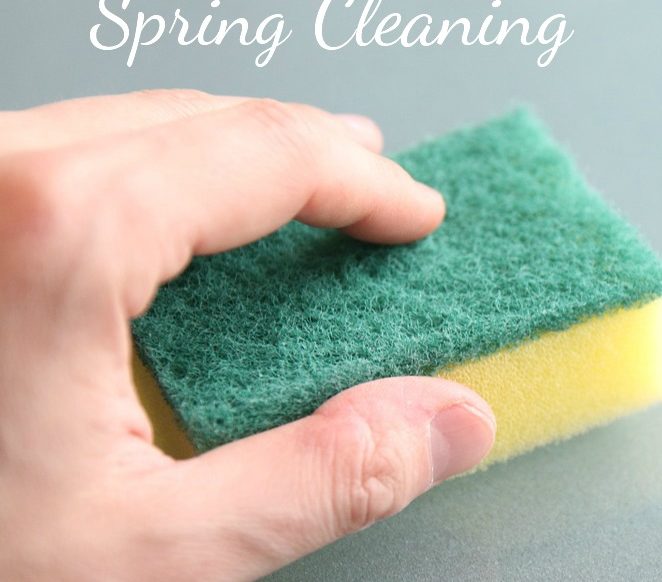10 Ways to Reach the Heart of the Rebel
You know the child.
The one who breaks all the rules. The one who doesn't listen to anything you say. The one who acts carelessly, only thinking of himself and the present moment, with no regard to how his actions will affect others or what long-term consequences his decisions will have.
Some people would call this child the rebel because he goes against everything he has been taught and what he knows is right. He hates being told what to do and bucks against it with all his might.
I have one of those children in my house. This child lives all out.
My mom used to say this little ditty to me when I was a child:
There was a little girl
Who had a little curl
Right in the middle of her forehead.
When she was good, she was very, very good.
But when she was bad, she was horrid.
That pretty much sums up this child of mine.
There are so many wonderful things about this little human, but many days I find myself pulling my hair out wondering why in the world this child will not do what they're supposed to do! Then, to make matters worse, they show no remorse when they've been caught. Discipline seems to have no effect and teaching seems to go in one ear and out the other.
How can I reach the heart of this child?
I wish I could say I had a formula that would magically make my child start thinking outside of their tiny box and look at the bigger picture of God and others. However, all you're going to find here is the musings of a mother who wants more than anything to see her children grow in the Lord, be sensitive to sin, and submit their lives to God's leadership.
Although I'm not an expert (and honestly I don't think anyone can be an expert parent; we're all just imperfect humans trying to figure this thing out, and the answers change for every child), I'm also not approaching this child training thing willy-nilly either. I'm thankful that God has given us direction for training our children in the Bible, that he provides wisdom for specific situations, and that he answers our prayers.
So here is my strategy for reaching the heart of my little rebel:
1. Commit my child's heart to the Lord
First and foremost I must remember that the choices my child makes are just that – personal choices. I cannot make my child do right, and I need to pray every single day for the Holy Spirit to do the work in my child's heart that I cannot do.
2. Love unconditionally
My child needs to know my love – whether I'm pleased with good choices or disappointed with wrong ones – they need to know I don't love them any more or any less based on what they do. The father of the prodigal son watched and waited for his wayward son, proving his forgiveness long before his son asked for it. I need to be careful that I am not holding grudges against my child for misbehavior. Being irritated with my child until they ask forgiveness shows that they are only accepted based on performance.
3. Teach God's Word
The key to my child's victory over sin is found in the Word of God, first through salvation, and second through yielding each day to the Holy Spirit's control. I must be faithful to help my child understand these concepts so they can personally put them into practice in their life.
4. Set boundaries
Although the rebel bucks against boundaries, they also need to know that they cannot live exactly as they please without consequences. Children need clearly set boundaries, with consequences that are consistently carried out when those are crossed. Proverbs 22:6 says, “Train up a child in the way he should go, and when he is old he will not depart from it.” One application of that verse is this: “Train up a child in the way he naturally is bent to go, and when he is old he will not depart from it.” In other words, if you let your child do whatever he wants to do now, you can be pretty sure he's going to do whatever he wants to do when he's grown too. That's not the direction I want my children headed, and therefore I'm not going to allow them to do what they want to do. They're going to have to learn what's expected of them, and they're going to learn from experience that there will be consequences every time they start heading in a different direction. Of course, boundaries and correction must be balanced out with the other things on this list!
5. Give a vision for Point B
If my child is at Point A (living for self and the here-and-now), the goal is to guide them to Point B (living for others, thinking before acting). I need to help my child understand what Point B is and why they want to go there. I'll be having regular meetings with my child to discuss those things.
6. Craft a plan for reaching Point B
It's not enough for my child just to “want to do better.” They need to know exactly what steps to take to reach Point B. It's my job to help create a plan that's personalized to this child that will provide the map for that journey. That map will include not only principles from God's Word and regular prayer with this child, but will also include practical help (for example: “When I feel angry at my brother and want to hit him, I will go in my room and shut the door instead.”)
7. Spend time together
All the teaching and training in the world will hold no weight when it is not backed up by quality time spent with my child. My child needs to know they are valuable, and that while I'm extremely interested in their spiritual growth, I'm also interested in them as a person. When you connect with a child on a personal level, it is much easier to connect on a spiritual level.
8. Encourage progress
Every step in the right direction, no matter how tiny, should be recognized. I don't want discouragement to set in when my child is making efforts to get to Point B but doesn't see any positive results from those efforts. I need to focus on the positive instead of going on and on about every setback. That will be easier when I remember the next point, which is to…
9. Remember God's grace in my own life
Boy, I sure make a lot of mistakes! God probably thinks of me as his little rebel too, based on how often I buck against his control and make my own selfish choices. But he forgives every single time, immediately, and without conditions.
When I think about how patient God is with me it is so much easier to be patient with my child and to remember that there will be mistakes. The goal is not perfection, but progress.
10. Never give up.
Some days will be very encouraging. But some days will be dreadfully discouraging. I can't allow the bad days to derail me from my plan. Just because there are mistakes doesn't mean that the entire strategy is worthless. It just means my child is human and needs some grace to get up and try again.
Do you have a little rebel or did you have one in the past? Has God given you special insight about how to reach their heart? I'd love to hear your thoughts!
Other articles for the Christian mother that you might enjoy:
What I'm Learning About Training Children From an Olive Tree
The Thing Our Children Really Need
To the Weary Mom: Here's Why the Bad Days Are Really The Best Days
Dear Mom of the Prodigal Child
Kindergarten Complete Review
Do you have a child who will be starting kindergarten soon?
Are you overwhelmed looking at all the curriculum choices available?
We recently received a review copy of Kindergarten Complete, so I thought you would be interested to see what we thought!
I have moved all of my homeschooling posts to christianhomeschoolfamily.com. You can go here to read this post at the new site.
5 Ways to Introduce Your Child To Jesus
As a Christian parent, you desire for your children to know Jesus and to come to their own acceptance of Him as their Savior.
But how do you actually do that?
Here are 5 ways to introduce your child to Jesus:
1. Spend time as a family reading the Bible
Your children need to understand just how important the Bible is. If you never spend time reading it, they will not have any reason to believe it is important. How can they know the truth about Jesus if they do not ever hear it being purposely taught by mom and dad?
If you don't know where to start, try these suggestions for Bible Time with toddlers and preschoolers.
2. Be faithful to church
Do you want your kids to understand how important Jesus is? Show them! Make the effort to get up and go to church every time the doors are open.
If your children constantly see you skipping church because there's a ball game or because you stayed up too late socializing on Saturday night or because some friends invited you to the lake on Sunday, you're sending a loud message to them that Jesus isn't really all that important.
3. Pray with them
Show your children that you have a personal relationship with Jesus by talking to him at regular intervals throughout the day. If you want them to believe that he can be their best friend, they need to see that he is your best friend.
Did you lose your keys? Stop and pray together, asking the Lord to help you find them.
Does your child have a tummy ache? Stop and pray together, asking the Lord to help your child feel better.
Did you find your keys or is your child feeling better? Stop and thank God together for answering prayer.
4. Talk about him throughout the day
Deuteronomy 6:7-9, speaking of the commandments of God, tells us that we should “…teach them diligently unto thy children, and shalt talk of them when thou sittest in thine house, and when thou walkest by the way, and when thou liest down, and when thou risest up. And thou shalt bind them for a sign upon thine hand, and they shall be as frontlets between thine eyes. And thou shalt write them upon the posts of thy house, and on thy gates.”
In other words, talking about the Bible should be integrated into every part of our day. Christian parents should always be looking for opportunities to teach their children the Word of God. When you eat, you can teach them that Jesus is the Bread of Life. When they do wrong, you can teach them what sin is and why they need a Savior. When they have a problem, you can teach them to trust in the Lord. Everything you do and say should be another opportunity to point them to Jesus. (Which means, by the way, that you'll need to spend time studying God's Word as much as you can – you can't teach something you don't know!)
5. Live out his word
It's not just enough to talk about the Bible; you must do what it says. If you truly believe something, it will affect your actions. Your children will decide whether or not the Bible is worth believing based on whether you show that you believe it.
If you want your children to know Jesus, they need to see visible evidence that you know him, that you trust him, and that you obey him.
Need more in-depth help on things like…?
- Insights on making your child’s faith real – and lasting
- Tips for surviving church with little ones (what to bring to church, what to do when they’re loud, how to get them to sit still)
- Jesus-centered books, movies, and toys for kids
- Everyday scenarios to talk about Jesus with your child
- Common personalities in kids, and how to teach each type
- Common questions about teaching a little one about God
I think you would benefit from this little eBook, How to Introduce Your Child to Jesus.
You can purchase it here for $5.99.
Moms, Let’s Quit Saying This To Our Kids
“Mom, can you throw this soccer ball to me so I can practice blocking it?”
“Mom, can you read this book to me?”
“Mom, can we paint something?”
“Mom, can you play a game with me?”
If you're a mom, chances are these are familiar phrases to you.
But I fear too often the answer is an unfortunate “Not right now.”
“Not right now; I'm making supper.”
“Not right now; I'm mopping the floor.”
“Not right now; I'm checking my email.”
I wonder what would happen if our kids heard a lot fewer “Not right now”s and more “Yes! I would love to!”s.
There's definitely a balance between getting the housework done (and yes, your kids can and should help) and spending time just playing.
Sometimes the “not right now” moments are good opportunities for my children to learn character. “We work first and then we play. I'd love to play, but the kitchen needs to be cleaned. We'll clean together and then we'll play together.” But if I'm not careful, I can turn the “work first, play later” philosophy into one big disappointment for my child. There will always be another load of laundry to fold, another dish to wash, another set of crumbs to sweep. If I wait until every shred of work is done the “not right now” moments will never turn into “okay, now” moments.
I'm not even going to try to pretend to have the balance of all that figured out.
But if I can't get it exactly right, I'd ten times rather err on the side of making sure my kids feel important. I don't want them to feel like mom is always putting their needs and wishes on the back burner – like it's something I'll get to if it happens to be convenient.
I'd rather leave the rice getting cold and sticky on the stove while I kick a soccer ball outside than to say “Not right now” and end up never getting around to going outside with my boy. “Sorry, it got too dark. Maybe tomorrow.”
Pretty soon he's going to stop asking because he knows it will only be a weak promise of “In a while” but that later will never come.
But if we eat sticky rice every night while we're out of breath and itchy from playing in the grass, guess what he's going to remember about his mama? He's going to remember that he was more important than her agenda.
Memories are not made from the “Not right now”s.
Memories are made from sticky rice and itchy legs.
I don't know about you, mama, but I don't want my son's childhood to be one long string of “Not right now” moments – moments that could have been a memory but instead became another disappointment for my child.
Together, let's get rid of the endless “Not right now”s. Let's not let our children grow up with large blank gaps in their memory where there should have been loving memories of mama spending time with them while dinner got cold on the stove. They'll never remember what dinner tasted like or whether the last load of laundry was folded.
They'll just know their mama wanted to be with them.
That's what I want my kids to remember. Don't you?
Non-Toxic Spring Cleaning Solutions
Spring is a time when we clean our homes in depth. We get a great feeling when the clutter and cobwebs are gone. However, many cleaning products are full of chemicals which are often both unnecessary and toxic. If you are looking for a healthy way to get your home in good shape without using chemical-laden cleaning products, here are some tips to get you there.
Vinegar
Vinegar is by far one of the most popular non-toxic cleaners. Ask anyone who avoids chemicals what their stand-bys are, and they will certainly mention vinegar. Vinegar is an acidic substance, and because of this, it effectively combats everything from grease to other build-ups of all kinds. Use vinegar on a clean rag to make mirrors squeaky clean, and to give a nice shine to sinks and toilet bowls. For floors that shine, mix vinegar with water and a few drops of soap, and wipe with a rag.
Lemon Juice
Like vinegar, lemon juice works because of its acidity. Clean your cutting boards by slicing a lemon in half and rubbing it into the board, as this removes both stains and germs. If your glass shower doors appear scum-laden, wipe a lemon over them to remove the build-up.
When was the last time you washed your microwave? This is a spring cleaning essential. Put a few tablespoons of lemon juice into a glass of water, and microwave to the boiling point. Keep the door closed for another 10 minutes and wipe clean with a cloth once it is opened. You will find that the food particles wipe away easily.
Baking Soda
Baking soda is another cleaning substance which has no limits. It kills viruses, and has deodorizing and grease-cutting capabilities. If you want to get rid of bathtub scum, sprinkle baking soda on a damp cloth, wipe it over the grayish scum, and wipe it away easily.
Tea Tree Essential Oil
There are many essential oils that are great to put into your box of cleaning supplies. One of the most popular essential oils used for cleaning is tea tree oil. This oil is antiviral, antibacterial, antimicrobial, and antifungal. It is extremely strong when undiluted, so simply put a few drops into any cleaning solution such as vinegar and water in order to give it an extra boost.
Olive Oil
Olive oil is a great cleaner, and perfect for polishing as well. Olive oil lifts dirt, so it is perfect to use as wood cleaner. It will also give it a nice shine while you clean. If you want it to have an extra pleasant scent, simply add a few drops of orange or lemon oil, and some vinegar if you like. Put this all in a spray bottle, or else dip a rag into the solution before wiping the wooden table or floors.
Spring cleaning is a perfect time to make your home feel like new. It doesn’t take dangerous and toxic chemicals to do so. Simply use some of these tried and tested natural cleaning supplies and your home will be feeling fresh in no time.
You can also check out my recipe for non-toxic disinfectant spray.
7 Reasons to Spring Clean Your Home
It's about that time of year when you're starting to think about spring cleaning your home.
Maybe you're dreading taking the time to dive in and get the work done, so I thought I'd give you some things to think on as to why it's a good idea to go ahead and spring clean your home.
Here are seven reasons to spring clean your home:
1. Improves your mood
Having a clean home is a great feeling. A cluttered, messy environment can wreak havoc on one’s emotions. Being able to come home every day to a space that is tidy and organized is a great gift you can give to yourself.
2. Relieves stress
It is a depressing feeling to wake up to disorder every single morning. Many people can attest to the fact that living in an untidy environment brings you a great amount of unnecessary stress. Spring cleaning will ensure that your home feels peaceful, rather than the chaos that you may have been forced to become used to.
3. Makes it easier to practice hospitality
No one wants to invite their friends over to a home that appears uncared for, and it is embarrassing to your family to have a dirty house. When your home has been through a detailed spring cleaning, you won't have a second thought about inviting others. It will be a pleasure for you, your family, and your guests.
4. Saves time
When you have to dig through a pile of clothing to find a small piece you have misplaced, or search yet again for the keys or shoes you lose on a consistent basis, valuable time is being lost. Spring cleaning saves time, as it give you a change to reorganize. It allows you to sort through everything you own once again, and give each tiny item a place of its own in order to be easily found each and every time.
5. Helps you be more organized
When you are organized, life runs more smoothly. If your home is orderly, both you and your guests will feel the difference. It will be easier to go about your daily duties, and keep on top of everything you are responsible for.
6. Gives you a workout
Spring cleaning is a great workout. It may be surprising to some, but both light and heavy housework give your body a boost. You may be surprised at what a sweat you work up while getting your home into tip-top shape. You can be sure to move your muscles, stimulate your lymphatic system, and even get a bit of cardio in while organizing items and scrubbing walls. If you don't normally have time to exercise, spring cleaning your home provides a great opportunity to get in a workout.
7. Blesses others
One of spring cleaning’s outcomes is finding things that we realize we do not need. This is a great time to give away what we cannot use anymore to someone who can benefit from our unwanted items. When you have sorted through clothing that no longer fits, appliances you no longer use, and books that your children have outgrown, you have a choice what you will do with it all. Consider donating to a charity or someone in need.
There are many benefits of spring cleaning, and these are just a few. Keep yourself going through the hard work with the thoughts of everything you will gain.
Note: I realize not everyone has the time or physical energy to spring clean their entire home all in one big sweep. If that is the case, consider spring cleaning year-round! Choose one area of your home to focus on each week. Declutter, organize, and deep clean one small area on a consistent basis, and you will find that you can keep your entire home in “spring cleaned” condition without having to devote an unreasonable amount of time or energy once a year.
















